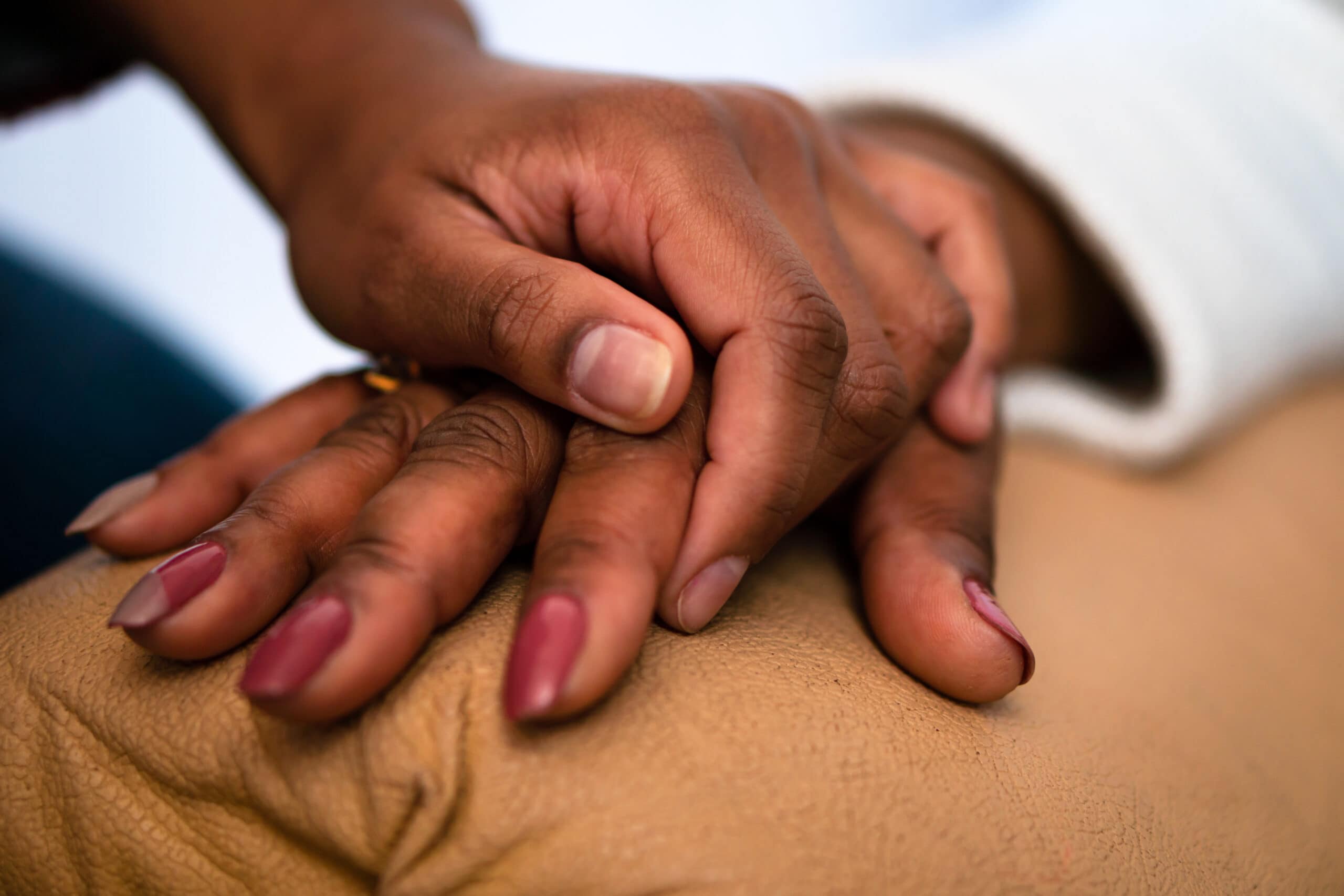
Caregiving During COVID-19
By: Laura Mantine, MD
During periods of crisis, like the COVID-19 pandemic, family members and close friends continue to provide daily care for their loved ones. These caregivers provide the initial response and defense for individuals who are often battling chronic medical illnesses. Like many first responders, caregivers often experience stress due to heavy workloads, fatigue, and anxiety. There are important steps that caregivers can take to help manage and cope with this ongoing pressure.
Important Steps for Caregivers to Take
Caregivers should develop habits and strategies to maintain their own physical health and emotional well-being. A caregiver can reduce transmission of a virus by diligent personal and patient hygiene. Washing hands with soap and water for at least 20 seconds frequently throughout the day has been shown to reduce viral spread. It is also important to wash your hands during food preparation, toileting, and blowing your nose, coughing, or sneezing. To be at your best, be sure to eat healthy, balanced meals, maintain a regular sleep routine, and find chances to exercise whenever possible. There is also a constant barrage of pandemic-focused news that can be overwhelming, so try to limit your intake to a certain time or times each day, and do not mistake social media opinion for fact. Remember to take care of yourself, as your loved one’s well-being relies on your ability to maintain your own.
Caregiver Burnout
Over any amount of time, caregiving can be physically, mentally, and emotionally exhausting. Caregiver burnout can happen in any caregiver-patient relationship, but the risk is heightened in times of increased stress like the COVID-19 pandemic. When suffering from burnout, a caregiver may experience hopelessness, overwhelming anxiety, sleep problems, or difficulty coping with everyday tasks. Although caregiving is a major responsibility, it shouldn’t completely overtake an individual’s life. Make time for yourself and take breaks when possible. Use these spare moments to listen to your favorite music, read, or work on a hobby. Also, stay connected to friends and family. Social distancing doesn’t mean total isolation so reach out to friends and family regularly for casual chats and wellness checks. Consider spending time together virtually, whether by watching a movie over a video chat session or playing games together online. If you live with loved ones, find ways to help and support each other.
During these uncertain times, caregivers remain a valuable constant for their loved ones. Please stay physically and mentally healthy as you perform your crucial role.
References
“Family Caregiving During the COVID-19 Pandemic.” Scott R Beach, Richard Schulz, Heidi Donovan, Ann-Marie Rosland. Gerontologist. 2021 Jul 13;61(5):650-660.
“Ensuring Adequate Palliative and Hospice Care During COVID-19 Surges.” Jean Abbott, MD, MH; Daniel Johnson, MD; Matthew Wynia, MD, MPH. JAMA. 2020;324(14):1393-1394.

